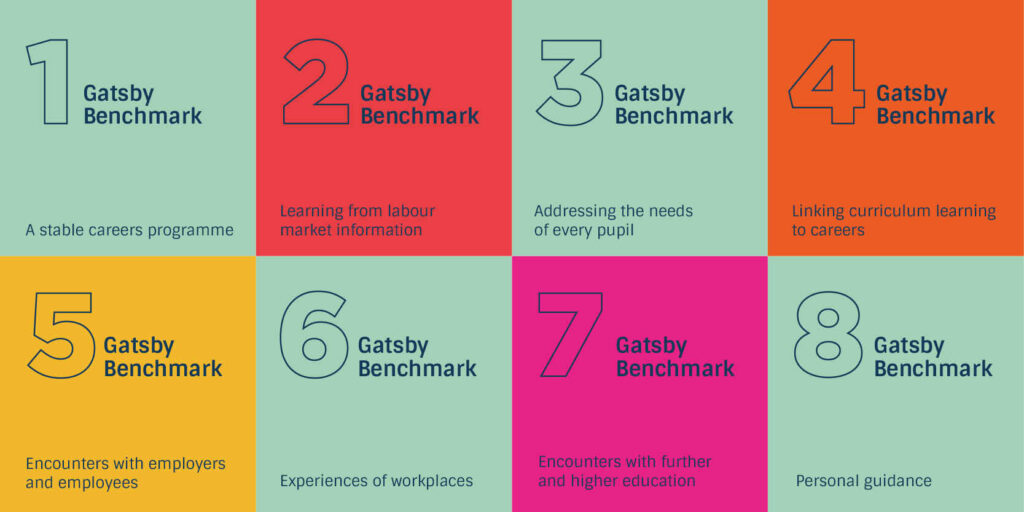
GNSA Secondary
Gatsby Benchmarks
THE 8 GATSBY BENCHMARKS
Please see individual links for a breakdown of every benchmark and how the school achieves it.

A stable careers programme:
Every school and college should have an embedded programme of career education and guidance that is known and understood by students, parents, teachers, and employers.
Learning from career and labour market information:
Every student and their parents should have access to good-quality information about future study options and labour market opportunities. They will need the support of an informed adviser to make best use of available information.
Addressing the needs of each student:
Students have different career guidance needs at different stages. Opportunities for advice and support need to be tailored to the needs of each student. A school’s careers programme should embed equality and diversity considerations throughout.
Linking curriculum learning to careers:
All teachers should link curriculum learning with careers. For example, STEM subject teachers should highlight the relevance of STEM subjects for a wide range of future career paths.
Encounters with employers and employees:
Every student should have multiple opportunities to learn from employers about work, employment, and the skills that are valued in the workplace. This can be done through a range of enrichment activities including visiting speakers, mentoring and enterprise schemes.
Experiences of workplaces
Every student should have first-hand experiences of the workplace through work visits, work shadowing and/or work experience to help their exploration of career opportunities, and expand their networks.
Encounters with further and higher education:
All students should understand the full range of learning opportunities that are available to them. This includes both academic and vocational routes and learning in schools, colleges, universities and in the workplace.
Personal Guidance:
Every student should have opportunities for guidance interviews with a careers adviser, who could be internal (a member of school staff) or external, provided they are trained to an appropriate level. These should be available whenever significant study or career choices are being made. They should be expected for all students but should be timed to meet their individual needs.